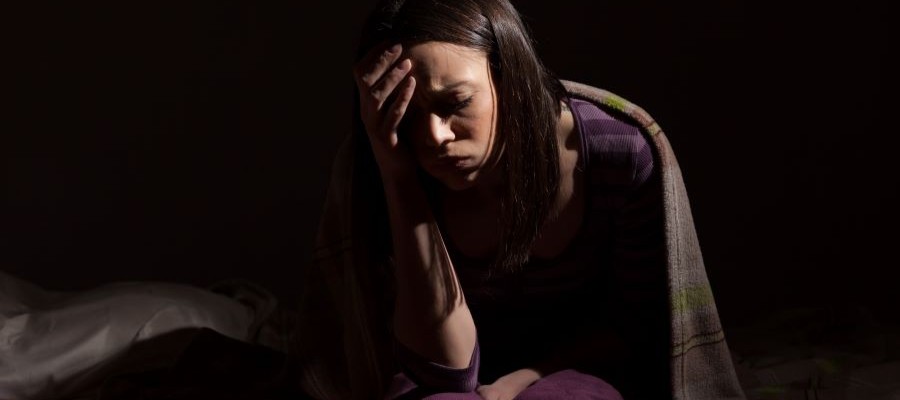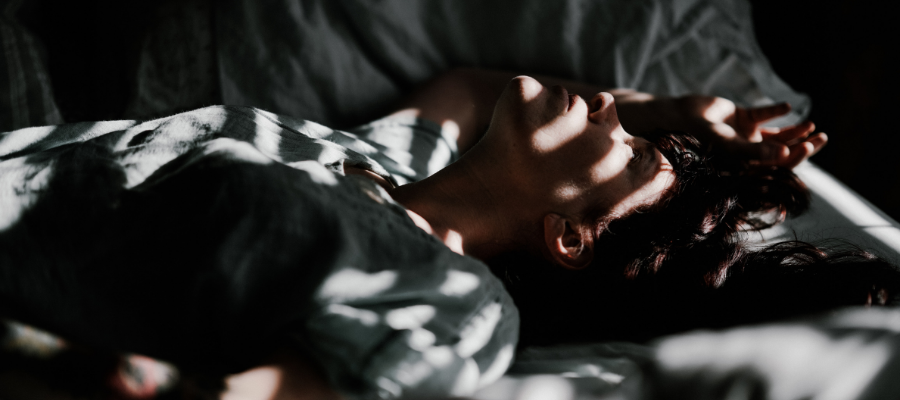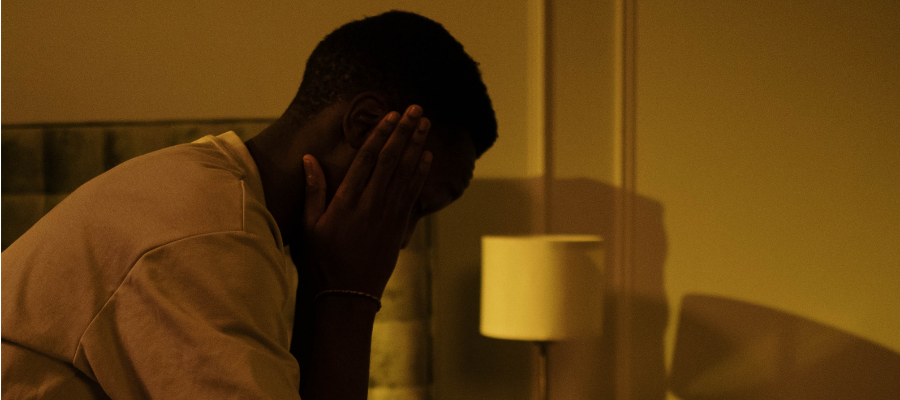
Common Causes of Insomnia
Insomnia is defined as a sleep disorder in which a person has difficulty falling or staying asleep, even when they have the chance to do so. Insomnia affects many people around the world. In fact, it occurs in 10%-50% of the global population. However, not all types of insomnia are the same. Here you can read about common causes of insomnia and how they may be treated.
Is all Insomnia the same?
No, the symptoms vary for different types of insomnia. There may be different approaches to treat one type of insomnia over another.
Acute Insomnia
This type of insomnia typically occurs because of a specific life circumstance. It might be that you can’t sleep due to an upcoming important event the following day. It can also be due to receiving upsetting news. For most people, a night or two of disrupted or lack of sleep passes without any treatment and they can resume their usual sleeping pattern.
Acute insomnia can also be caused by:
- Disruptions in your environment, such as noise or blue light
- Unfamiliar sleep environment, such as a hotel room or a new home
- Physical discomfort
- Certain medications
- Illness
- Jet lag
Acute insomnia can also be caused by something positive. Things that causes too much excitement for you to rest well.

Chronic Insomnia
This type of insomnia affects a person’s sleep at least three nights per week for at least three months. There may be many sources of chronic insomnia. They can be unhealthy sleep habits, working a shift schedule, changes in one’s environment or other clinical or medication related disorders. Primary chronic insomnia, sometimes called idiopathic insomnia, doesn’t have an obvious cause or related medical condition.
Sometimes referred to as Secondary Insomnia, chronic insomnia may also be comorbid. That is, it may be linked to another medical or mental issue. Chronic Insomnia can be caused by:
- Chronic medical conditions, such as diabetes, Parkinson’s disease, hyperthyroidism and obstructive or central sleep apnea.
- Mental health conditions, such as depression, anxiety, or attention deficit hyperactivity disorder (ADHD).
- Medications, including chemotherapy drugs, antidepressants, and beta blockers.
- Caffeine and other stimulants, such as alcohol, nicotine, and other drugs.
- Lifestyle factors, including frequent travel and jet lag, shift work and incorrect napping habits.
Onset Insomnia
Onset insomnia occurs when one has trouble falling asleep. This can be acute or chronic.
The most common cause of onset insomnia is psychological. Stress, anxiety and depression can make it difficult to relax enough to fall asleep.
Caffeine and other stimulants can also have an immediate affect your ability to fall asleep. However, when you stop the use of external stimulants, this usually results in a quick return to natural and restorative sleep patterns.
Maintenance Insomnia
Maintenance insomnia is either difficulty to stay asleep or waking too early and having trouble falling back asleep.
Mental health conditions such as depression can cause maintenance insomnia. However, other medical conditions may be waking you from sleep. These may include:
- Sleep apnea
- Asthma or other respiratory conditions
- Restless leg syndrome (RLS)
- Periodic Limb Movement Disorder (PLMD)
- Gastroesophageal reflux disease (GERD)

Idiopathic Insomnia
This lifelong sleep disorder, also referred to as childhood-onset insomnia, starts during infancy and continues into adulthood. It is not caused by other sleep disorders, stress, medical or psychiatric disorders. There may be some imbalance in your body such as an overactive awakening system and/or an underactive sleep system. However, doctors are not sure what causes this form of insomnia.
Drug/Substance induced Insomnia
This type of insomnia is a direct result of the use of medication, caffeine, alcohol, or particular foods.
Paradoxical Insomnia
Those suffering from this form of insomnia demonstrate no evidence of any sleep disturbance. They often complain of getting little or no sleep for one or more night. They have a keen awareness of their external environment or internal processes that are consistent with being awake. People with paradoxical insomnia will overestimate the time it takes them to fall asleep as well as underestimate the total time they spend asleep. Given the severity of their insomnia complaints, their daytime effects vary greatly but tend to be far less severe than expected.
Psychophysiological Insomnia
This type of insomnia specifically focuses on worrying about not being able to sleep. If you suffer from this form of insomnia, you may have racing thoughts about your insomnia and as bedtime approaches, this tension and anxiety make it harder to fall asleep. Unfortunately, this can turn into a cycle that is difficult to break.

Insomnia Diagnoses
There are several options for diagnosing insomnia. Some of these options are:
- Physical exam: A doctor may do a physical exam to look for a medical explanation for your insomnia. Sometimes, this may include a blood test to check for thyroid problems or another condition that could lead to poor sleep.
- Sleep habits review: A questionnaire or sleep diary about your sleep-wake pattern as well as your level of daytime sleepiness can help your doctor in their diagnosis.
- Sleep study: If other options do not explain your insomnia, you may need to spend a night at a sleep lab. A wide range of body activities are monitored and recorded while you sleep. This includes brain waves, breathing, heartrate, eye, and body movements.
Insomnia Treatment
Changes in your sleep habits and addressing issues that might be common causes of insomnia, such as stress, medical conditions, or medications, should be the first approach and can help to return to healthy, restorative sleep. If this does not resolve the insomnia, your doctor may suggest Cognitive Behavioral Therapy for Insomnia (CBT-I).

Cognitive Behavioral Therapy for Insomnia is comprised of two parts:
The cognitive part of CBT-I
The cognitive part of CBT-I helps you to recognize and change the beliefs that affect your ability to sleep. It works to improve the cycle of worrying about sleep that keeps you awake. It teaches you to control and eliminate the racing thoughts that prevent you from falling asleep.
The behavioral part of CBT-I
The behavioral part of CBT-I helps you develop good sleep habits using strategies such as:
- Stimulus control therapy: This method works to create a healthy sleep environment, free of factors that make your mind resist sleep. For example, you might want to remove the television from your bedroom and to only use your bed for sleep and sex.
- Relaxation techniques: Progressive muscle relaxation, biofeedback and breathing exercises can help to reduce sleep anxiety before you go to bed. For example, breathing exercises that help to control your heart rate can help to reduce the racing thoughts that tend to crowd your mind at bedtime, allowing you to relax and fall asleep.
- Sleep restriction: This is a therapy that uses partial sleep deprivation with the goal of having you attain more REM sleep when you do sleep. You would initially spend less time in bed and eliminate daytime naps so that you are even more tired the next night. You gradually increase your nighttime sleep once you see an improvement.
- Remaining passively awake: Another name for this form of therapy is “paradoxical intention” in which you work to reduce your anxiety around falling asleep by getting into bed and trying to stay awake rather than expecting to fall asleep.
- Light therapy: If your insomnia is due to falling asleep too early or waking too early, light therapy to help re-train your circadian rhythm, or internal clock, may work well. Exposure to daylight or specific wavelengths that produce green and blue light at specific times of the day or evening can work to shift your circadian rhythm. This allows you to stay awake until your desired bedtime or stay asleep later in the morning.
Sleeping pills and sleep medication
Prescription medications and over-the-counter sleep aids can help make you drowsy, get to sleep and stay asleep. You can also resort to natural sleep aids. Doctors do not recommend relying on sleeping pills or nonprescription sleep medication for more than a few weeks.
Prescription medications can be habit forming and all sleep aids can have side-affects, including daytime grogginess, an increased risk of falling, dizziness, confusion, cognitive decline, and difficulty urinating.
Consult your doctor if you have insomnia

It is important to discover the source of your insomnia to determine the best form of treatment. Consult your doctor for a treatment plan that will work for you. Please note that the present article is for information purposes only and cannot be used as a basis for the diagnosis or treatment of any type of insomnia.
